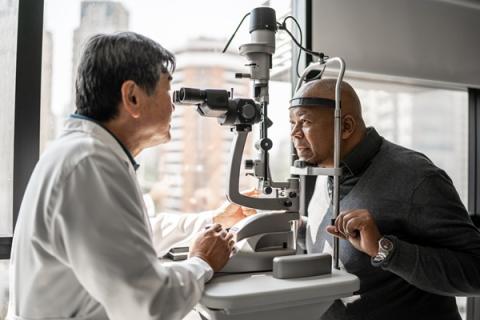Glaucoma: The Silent Thief of Sight
The risk of developing glaucoma increases significantly with age, particularly for those over age 60. This makes regular eye exams an essential routine for older adults. Glaucoma is insidious in its progression— it often goes unnoticed until significant vision loss occurs. The National Eye Institute says that up to half of people with glaucoma don’t know they have it. Early detection through a dilated eye exam is the best defense against this stealthy adversary.
One of the biggest challenges in fighting glaucoma is the lack of symptoms in its early stages. By the time one notices vision loss, the disease might have already caused significant damage. Regular screening is critical, as it can detect signs of glaucoma before any noticeable vision loss occurs. These screenings are quick and painless, and can be a part of your routine eye check-up.
While there is no cure for glaucoma, early diagnosis can help manage the condition and slow its progression. Treatment often involves prescription eye drops or, in some cases, laser treatment or surgery to reduce pressure within the eye. Getting treatment and regular follow-ups with an eye care professional can help preserve vision and quality of life.
“Glaucoma is a silent, underdiagnosed, costly and debilitating disease,” said Tasneem Sharma, PhD, a glaucoma researcher. “It occurs when there is increased pressure within the eye and progressive death or neurons in the back of the eye. Current treatment options only include reducing elevated pressure in the eye, but these treatments only slow the disease rather than prevent it, so patients still progress toward vision loss.”
Lifestyle choices can also impact the management of glaucoma. Regular exercise, a healthy diet, and avoiding excessive strain on the eyes are beneficial. Quitting smoking is particularly important, as smoking increases the risk of developing glaucoma and can accelerate its progression.
Awareness and education about glaucoma are not only vital for those at risk but also for their families and caregivers. Understanding the importance of routine eye exams, recognizing potential signs of vision problems, and offering support in managing treatment can make a significant difference.
Remember, when it comes to glaucoma, prevention and early detection are key.
